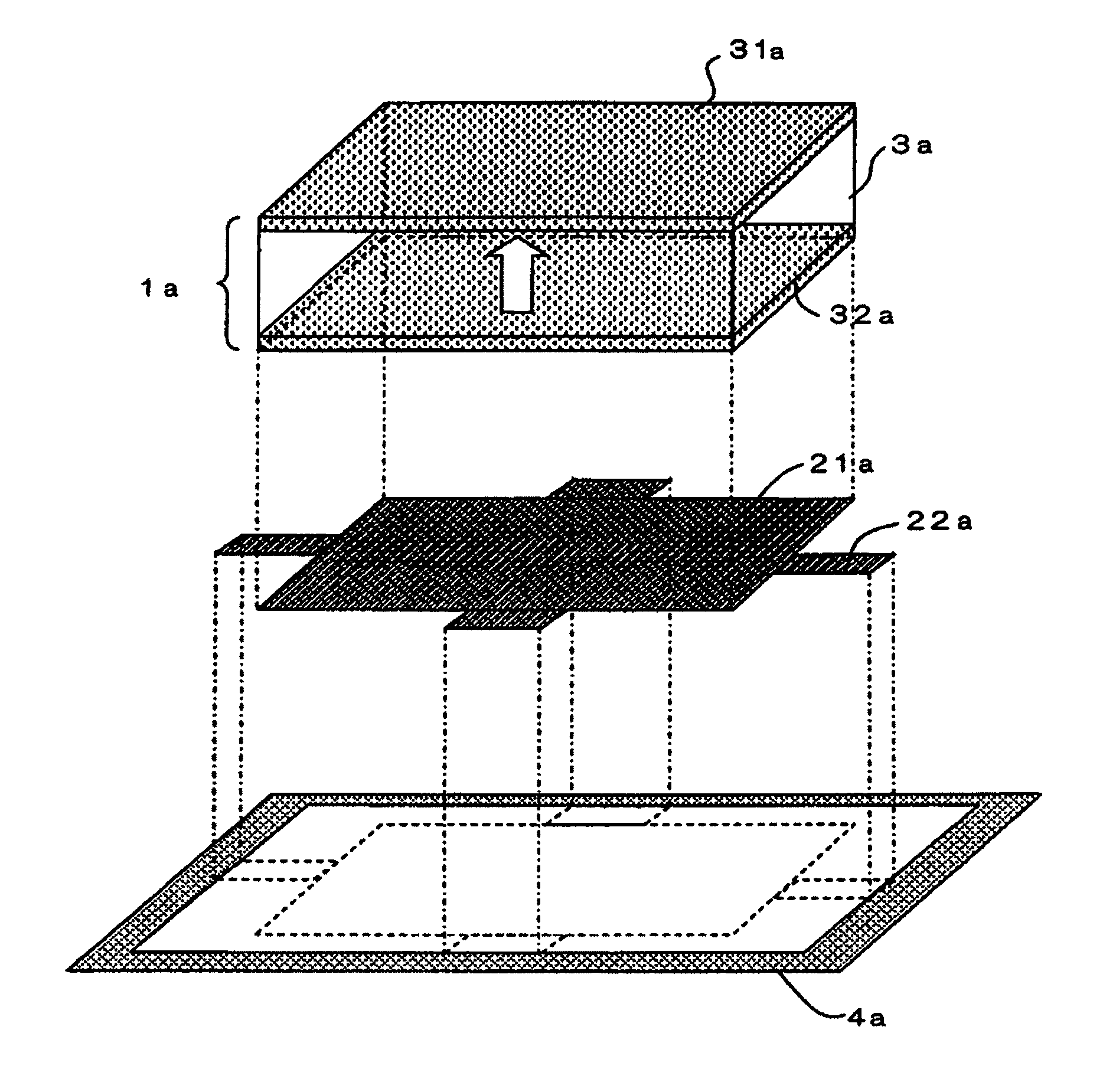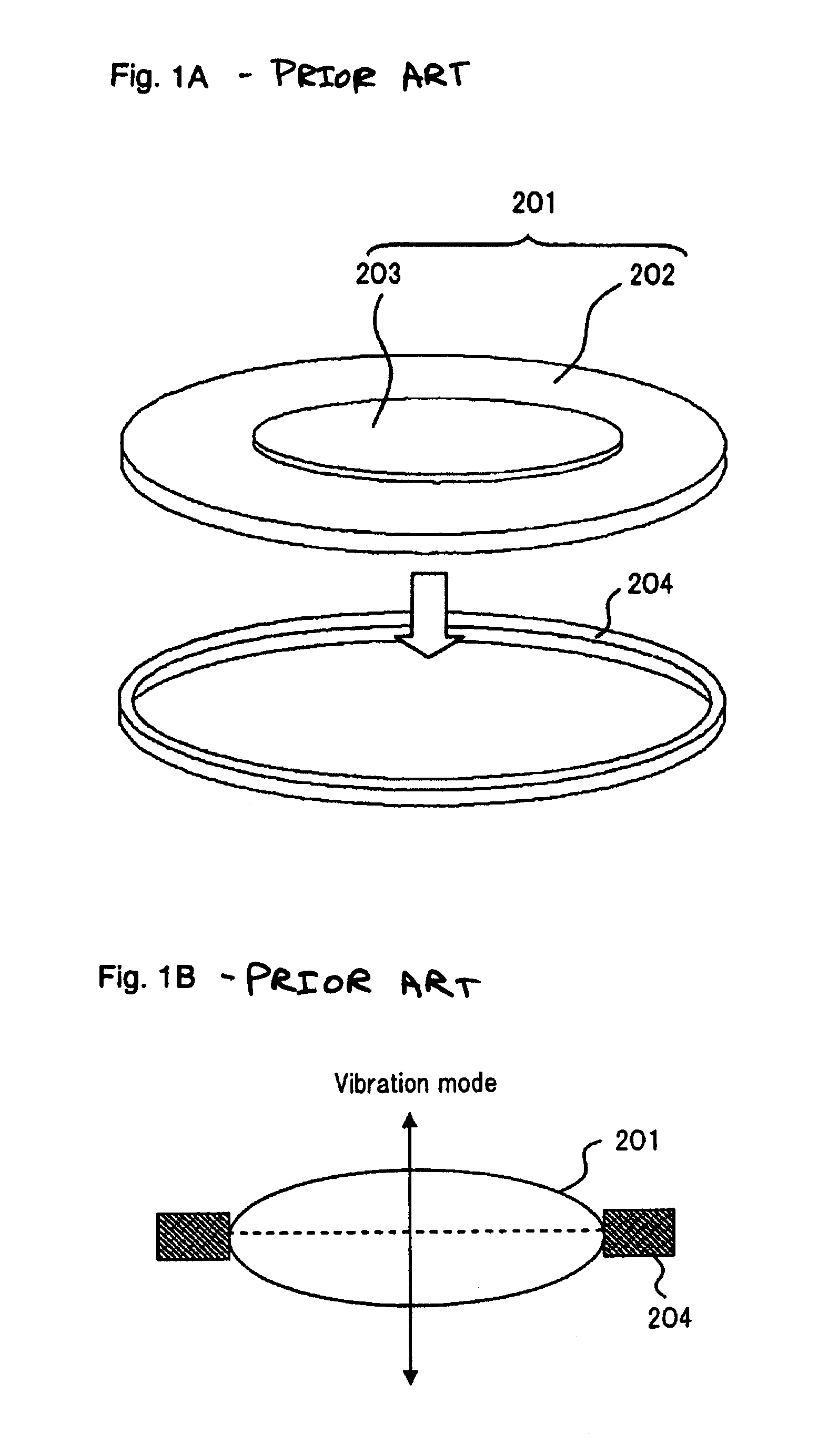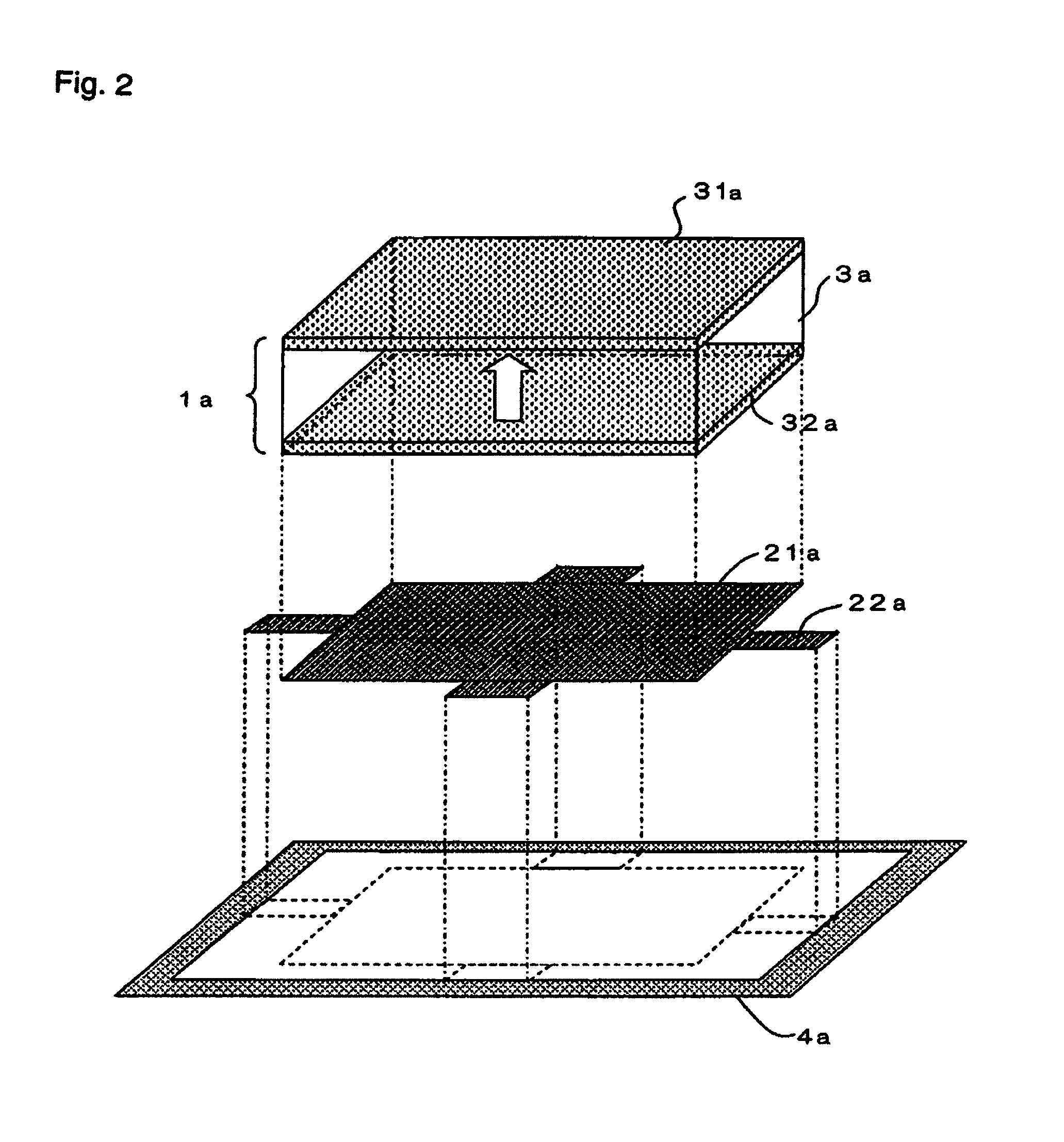Piezoelectric actuator
a piezoelectric actuator and actuator technology, applied in piezoelectric/electrostrictive/magnetostrictive devices, piezoelectric/electrostriction/magnetostriction machines, electrical transducers, etc., can solve the problems of difficult to form leaf springs, difficult to arrange the diaphragm at an optimal position, and less suitable techniques for reducing thickness, etc. problems, to achieve the effect of generating large vibration amplitude, reducing the impa
- Summary
- Abstract
- Description
- Claims
- Application Information
AI Technical Summary
Benefits of technology
Problems solved by technology
Method used
Image
Examples
example 1
[0092]A piezo-electric actuator illustrated in FIGS. 12A, 12B was fabricated. FIG. 12A illustrates a top plan view of a base, beam members, and a supporting member. Values in the figure are in units of millimeters. FIG. 12B in turn illustrates an exploded perspective view of the piezo-electric element. The piezo-electric actuator of Example 1 has piezo-electric element 101a, base 121a, supporting member 104a, and beam members 122a. Piezo-electric element 101a is bonded to base 121a with epoxy-based adhesive, while base 121a is connected to supporting member 104a via four beam members 122a.
[0093]As illustrated in FIG. 12B, piezo-electric element 101a is a single-layer type piezo-electric element consisting of upper insulating layer 133a, upper electrode layer 131a, piezo-electric body 103a, lower electrode layer 132a, and lower insulating layer 133a′. Upper insulating layer 133a and lower insulating layer 133a′ have a length of 10 mm, a width of 10 mm, and a thickness of 50 μm. Piez...
example 2
[0100]The piezo-electric actuator of Example 2 has base 121b, supporting member 104b, and beam members 122b. In Example 2, the number of beam members 122b attached to the base was changed from four in Example 1 to two in order to confirm the degree of reduction in the resonance frequency. As illustrated in FIG. 14, conditions were the same as in Example 1 except for the number of beam members 122b. The piezo-electric actuator had a circular form having a diameter of 16 mm and a thickness of 0.45 mm. Values in the figure are in units of millimeters. The piezo-electric actuator provided a reciprocal vibration mode, with a resonance frequency of 498 HZ, a maximum amplitude of the vibration velocity of 172 mm / s, and a maximum vibration velocity ratio of 0.86.
[0101]It was confirmed from the comparison between Examples 1 and 2, that the resonance frequency can be lowered by changing the number of beam members without causing a large change in the vibration mode or in the vibration velocit...
example 3
[0102]In Example 3, the configuration of Example 2 was used, while the material of the base was changed from phosphor bronze to SUS304. The other conditions are the same as in Example 2. The piezo-electric actuator provided a reciprocal vibration mode, with a resonance frequency of 572 HZ, and a maximum amplitude of the vibration velocity of 189 mm / s.
[0103]It was confirmed from the comparison between Examples 2 and 3, that the resonance frequency can be adjusted by changing the material of the base without causing a large change in the shape, vibration mode, and maximum amplitude of the vibration velocity of the actuator.
PUM
 Login to View More
Login to View More Abstract
Description
Claims
Application Information
 Login to View More
Login to View More - R&D
- Intellectual Property
- Life Sciences
- Materials
- Tech Scout
- Unparalleled Data Quality
- Higher Quality Content
- 60% Fewer Hallucinations
Browse by: Latest US Patents, China's latest patents, Technical Efficacy Thesaurus, Application Domain, Technology Topic, Popular Technical Reports.
© 2025 PatSnap. All rights reserved.Legal|Privacy policy|Modern Slavery Act Transparency Statement|Sitemap|About US| Contact US: help@patsnap.com



